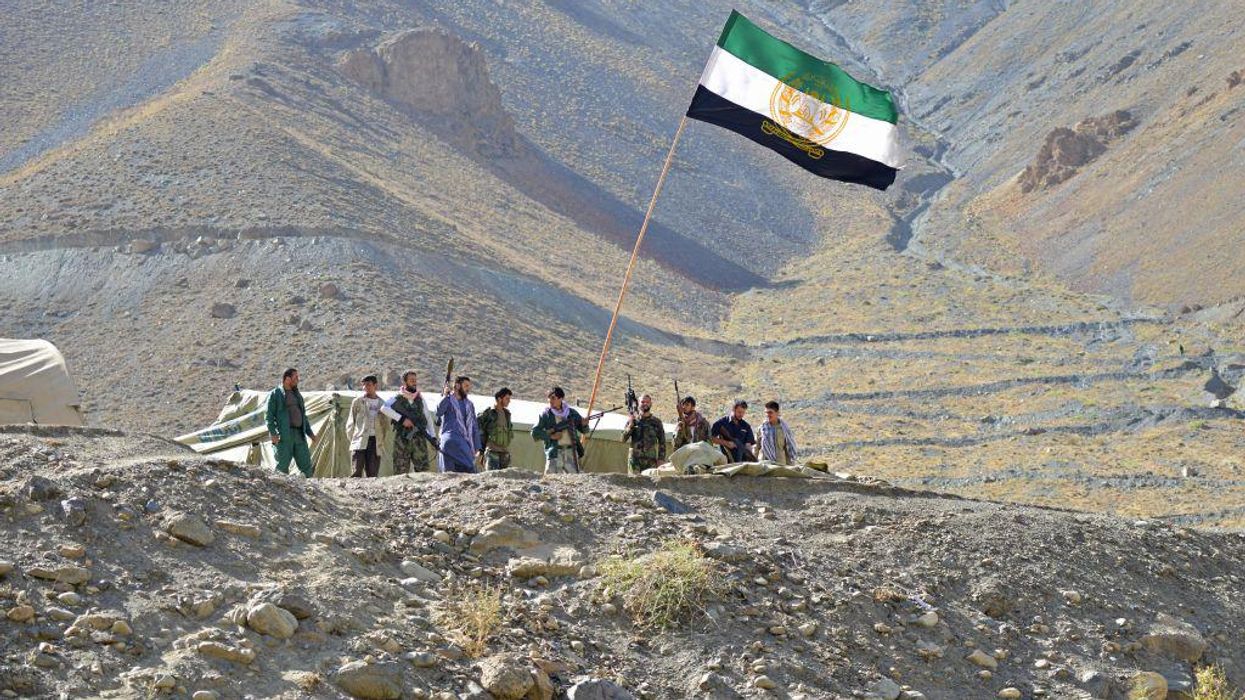
Ahmad Sahel Arman/AFP/Getty Images

The fall of Kabul and the Taliban's takeover of Afghanistan are a stark reminder of how much identity matters to a country. Unfortunately, America's identity obsessions are major vulnerabilities that have been met with aggression from our adversaries and threaten the stability of our own nation.
The longest war in United States history is concluding in the worst way possible. A suicide bomber killed 13 U.S. servicemen and at least 60 Afghans in an attack on Aug. 26 outside Kabul's airport. This is yet another reminder of how quickly the situation in Afghanistan has descended into chaos, despite the best efforts of President Biden and top military officials to assure Americans that everything was under control.
Most Americans assume that the world's mightiest military would be able to train up a national Afghan Army over the course of nearly twenty years and prepare it to fight religious insurgency in its home country. Despite the U.S. military's best efforts, the Afghan Army disbanded once the national government collapsed earlier this month. The Taliban's blend of fundamentalist Islam and Pashtun cultural norms is a combination that would be completely foreign to the average American. Part of the reason the Taliban recaptured the country so quickly is because it is a lot clearer about who it is and what it believes than either the Afghan Army or the American politicians and military brass who are winding down the war.
America is battling an identity crisis because our ruling class and the people who identify with their beliefs have forgotten who we are. This is most clearly seen in our domestic political fights about CRT and vaccine passports, but it also has implications for how we engage the world. The American experiment of representative government, expressed through our constitutional republic, is not the default across the globe. We have enjoyed stable, orderly transitions of power for so long that we underestimate how hard it is to build a nation. We are equally unappreciative of the effort it takes to hold one together, especially one with such ethnic, religious, and cultural diversity.
The Taliban has deeply held religious principles, and its adherents are willing to die for them. Our leaders have trendy beliefs and don't even have the courage to debate them. American politicians included $10 million for gender programs in Pakistan — paid for by a COVID-relief spending bill last year meant for Americans — but deny the gender binary even exists back home.
The Biden administration is busy trying to fashion a woke utopia by parroting trendy equity-speak, insinuating someone other than women can get pregnant, doing land acknowledgements before official government meetings, and promoting recruitment videos for the military and intelligence agencies that focus more on personal narrative than national identity. Our military leaders focus on "white rage" in congressional hearings; our embassies hoist the LGBT pride and BLM flags across the globe; and our current president rescinded regulations that blocked taxpayer-funded foreign aid from being used for abortions overseas. We assume our positions on these issues are the correct ones and export them to other countries without considering how they square with their customs, cultures, and beliefs.
We are a country divided by race, confused about the biological reality of gender, ashamed of our complicated national history, and paralyzed by fear. The Afghan Army surrendered its country because its identity and resolve were no match for the Taliban's. We are losing our country because our national identity is being taken over by narcissistic identitarianism. Our nation of over 330 million is splitting into factions held together not by timeless truths rooted in our own Judeo-Christian heritage and founding documents but by superficial tribal similarities.
Many Americans have concluded that nation-building is a misuse of American military and financial resources. I would argue that nation-sustaining is just as difficult when you're in the midst of an identity crisis. A country that sees itself and the world through a set of lenses clouded by skin color, sex, sexuality, and party affiliation will always have difficulty understanding the complexities of tribe, religion, sect, and ethnicity that are a fundamental part of life in other parts of the world. Even worse is a country whose leaders have disdain for half its citizens. That type of country is unstable and could collapse at any time, because no empire lasts forever.
Delano Squires
Contributor